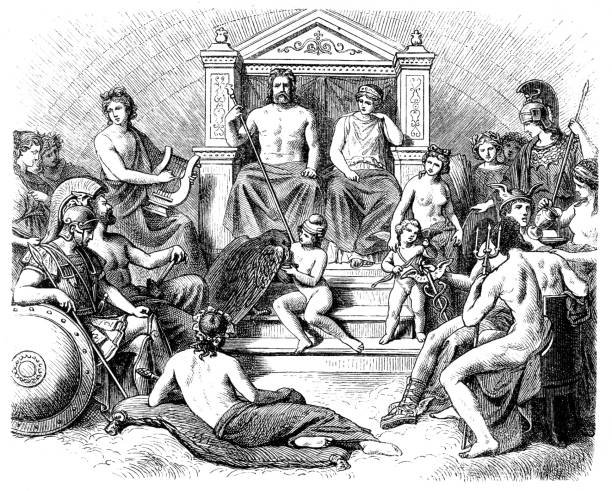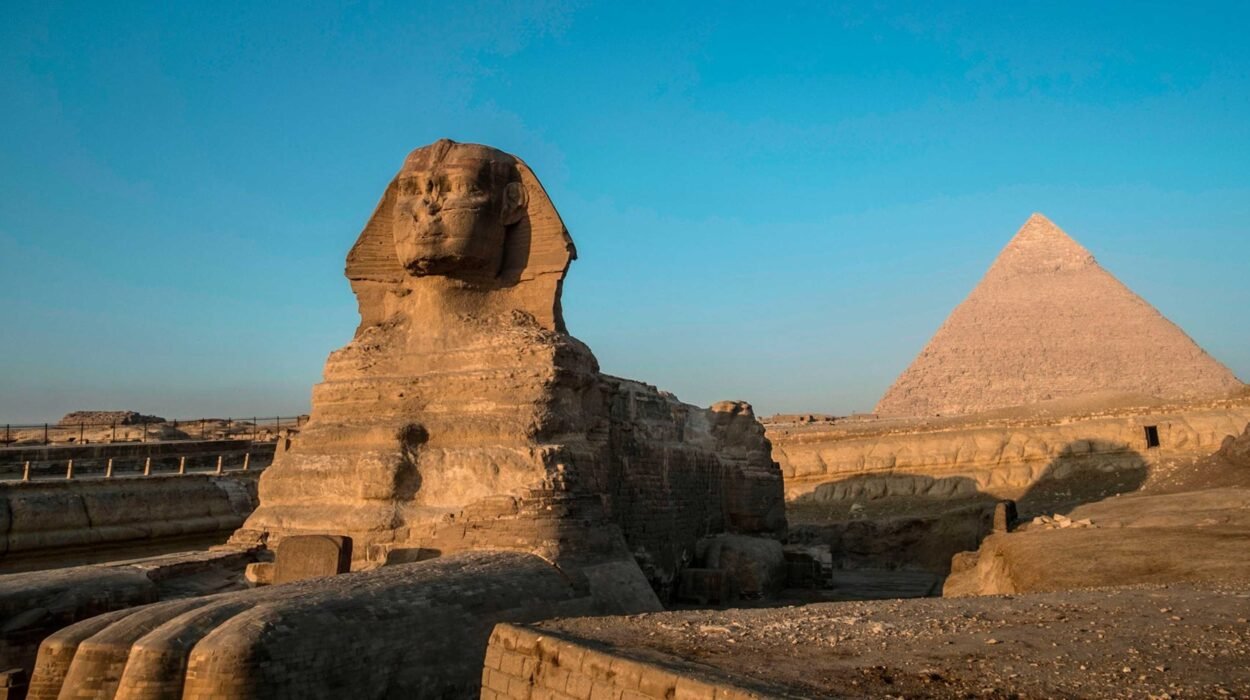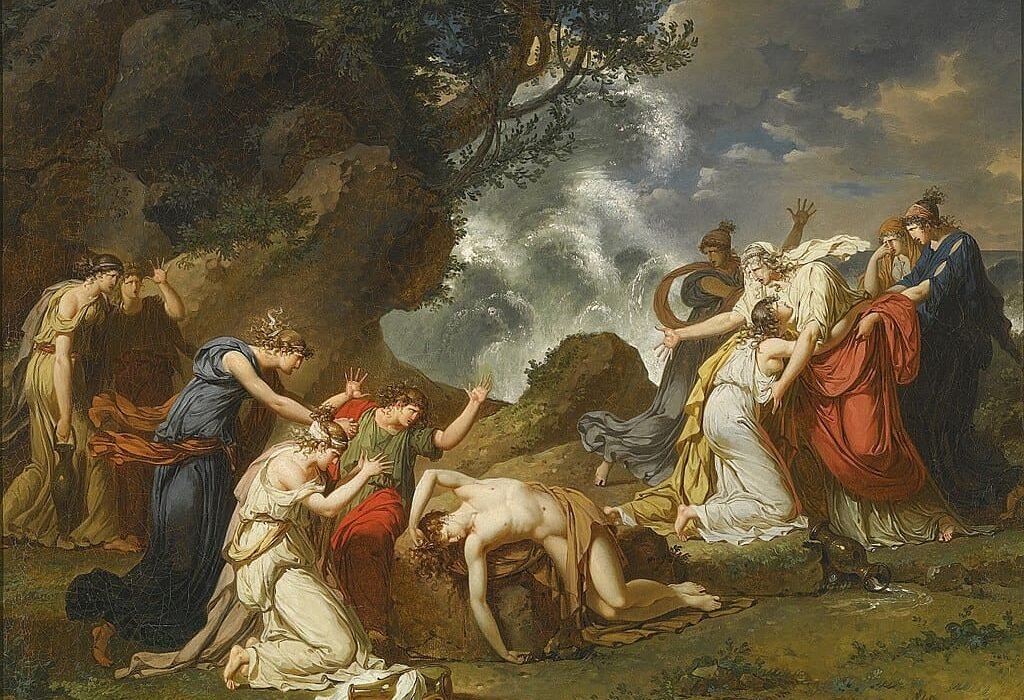In the vast and intricate tapestry of Greek mythology, no figure shines as brightly or thunders as loudly as Zeus, the King of the Gods and Master of Thunder. He stands at the summit of Mount Olympus, enthroned in brilliance, his hand clutching the lightning bolt—the weapon of both creation and destruction. Zeus is not merely a god of power; he is the embodiment of authority, justice, and the primal forces of the universe. For the ancient Greeks, his presence was undeniable, echoing in the roll of thunder, blazing in flashes of lightning, and felt in the laws that bound both mortals and immortals.
But Zeus is more than just a mythological ruler. His stories reveal humanity’s attempt to understand the forces of nature, the structures of society, and the mysteries of destiny. He is a god of paradoxes: benevolent yet wrathful, protector yet punisher, faithful guardian yet infamous philanderer. To understand Zeus is to delve into the very heart of Greek mythology and, beyond that, into the very soul of human imagination.
The Origins of the Thunder God
Zeus’s story begins long before his rule, in an age of cosmic strife and generational conflict. Born to Cronus and Rhea, he was the youngest of the six original Olympians. His father, Cronus, was the mighty Titan who had overthrown his own father, Uranus, and taken control of the cosmos. But Cronus had inherited a curse: just as he had dethroned his father, so too would one of his own children overthrow him.
Terrified of his fate, Cronus devoured each child Rhea bore him—Hestia, Demeter, Hera, Hades, and Poseidon—swallowing them whole to prevent their rise. But when Rhea birthed her final son, Zeus, she could not bear to see him consumed. Instead, she conspired with Gaia, the Earth, and hid Zeus in a cave on the island of Crete. In his place, she gave Cronus a stone wrapped in swaddling clothes, which he swallowed without question.
In secret, the infant Zeus was raised by nymphs, nourished by the milk of the divine goat Amalthea, and guarded by the Curetes, who clashed their weapons to mask his cries from Cronus. From this hidden childhood, Zeus grew into strength and cunning, destined to challenge his father and liberate his siblings from the Titan’s belly.
The Titanomachy: War for the Cosmos
Zeus’s rise to power was neither peaceful nor immediate. Once grown, he returned to confront Cronus. With the aid of the goddess Metis, who gave Cronus a potion to force him to vomit, Zeus freed his swallowed siblings. United at last, the Olympians prepared for war against the Titans in a conflict known as the Titanomachy.
For ten years, the heavens and earth shook with the clash of gods and Titans. The mountains quaked, the seas roared, and fire blazed across the cosmos. The Titans fought with the raw, ancient strength of primordial beings, while Zeus and his siblings wielded the power of youthful ambition and elemental force.
The tide turned when Zeus freed the Cyclopes and the Hecatoncheires from their imprisonment in Tartarus. In gratitude, the Cyclopes gifted him the lightning bolt, Poseidon the trident, and Hades the helmet of invisibility. Armed with these divine weapons, the Olympians finally triumphed. The Titans were cast into Tartarus, guarded by the hundred-handed giants, and Zeus ascended as the undisputed ruler of the universe.
The Titanomachy was more than just a mythic war—it symbolized the triumph of order over chaos, of new generations over the old, and of divine justice over tyranny. Zeus’s victory marked the beginning of a new era, with Mount Olympus as the center of divine rule.
Zeus as King of the Gods
Once enthroned, Zeus established himself as the supreme authority among gods and mortals alike. He was the arbiter of justice, the enforcer of oaths, and the protector of hospitality (xenia). No other god could rival his dominion, though many challenged his will.
As ruler, Zeus embodied both law and balance. His judgments ensured harmony among gods, preventing them from tearing the cosmos apart with their rivalries. He was not only the king of thunder and lightning but also the overseer of fate, destiny, and the moral codes that bound Greek society together.
His rule was not without conflict. His consort and sister, Hera, often challenged him, particularly over his many affairs with mortals and other goddesses. His brothers, Poseidon and Hades, occasionally vied for influence, but all acknowledged his supremacy. Even the most rebellious gods, such as Prometheus, who defied him by giving fire to humanity, could not escape his thunderous wrath.
Zeus was both revered and feared. For mortals, he was a divine protector—guardian of cities, families, and oaths. But he was also a punisher, striking down oath-breakers, hubristic kings, and those who defied sacred customs. His dual nature reflected the unpredictable forces of the natural world: life-giving rain and destructive storms, both springing from the same sky.
Master of Thunder and Sky
Above all else, Zeus was the god of the sky, the wielder of thunder and lightning. His weapon, the thunderbolt, was a gift from the Cyclopes, forged in the fires of divine creation. To see lightning flash across the heavens was, for the Greeks, to witness the hand of Zeus at work.
But his dominion extended beyond mere storms. He was the bringer of rain, essential for crops and survival, and thus a god of fertility as much as destruction. His control over the weather made him a god deeply tied to agricultural cycles, upon which Greek life depended.
The imagery of Zeus as a storm god echoes ancient Indo-European traditions, where sky-fathers wield thunder as their primary symbol of authority. From the Norse god Thor to the Hindu god Indra, thunder has long been associated with divine kingship and power. Zeus stands as the Greek expression of this archetype, embodying the awe-inspiring majesty of the storm.
Zeus and His Loves
One of the most famous—and controversial—aspects of Zeus’s mythology is his countless love affairs. Though married to Hera, the goddess of marriage, Zeus was notorious for his infidelity. His liaisons, both with goddesses and mortal women, produced many of the most important figures in Greek mythology.
With the Titaness Leto, he fathered Apollo and Artemis. With the mortal Semele, he fathered Dionysus, god of wine and ecstasy. With Alcmene, he sired Heracles, the greatest of Greek heroes. With Europa, he produced Minos, the legendary king of Crete. And with countless others, both divine and human, he filled the Greek world with demigods, kings, and legends.
These affairs were not mere tales of passion but often symbolic narratives. They explained the origins of dynasties, the divine sanction of rulers, or the spread of culture. They also reflected the Greek understanding of gods as beings of immense power, whose desires could shape the mortal world in profound ways.
Yet, these stories also reveal the complexities of Zeus’s character. His infidelities caused endless strife with Hera, whose wrath often fell upon his lovers or their children. Through these myths, the Greeks explored themes of love, jealousy, power, and divine-human interaction, embedding moral and social lessons within divine drama.
Zeus the Upholder of Justice
While Zeus’s personal life was full of contradictions, his public role as king of the gods was rooted in justice. He was known as Zeus Xenios, protector of strangers and travelers, ensuring that hospitality was honored. As Zeus Horkios, he was the guardian of oaths, punishing those who swore falsely. As Zeus Agoraios, he presided over marketplaces, ensuring fairness in trade.
Zeus’s justice was not always gentle. Those who committed hubris—arrogance against the gods—were swiftly punished. Prometheus, chained to a rock for defying him, serves as one of the most powerful examples of divine retribution. Yet even in punishment, Zeus was seen as upholding cosmic balance.
To the Greeks, Zeus’s justice was both divine and deeply human. It reflected their belief in a world governed by order, law, and respect for sacred traditions. By honoring Zeus, they honored the structures that held society together.
Zeus in Art and Worship
Zeus was not only the subject of myth but also of worship. Temples dedicated to him stood across the Greek world, the most famous being the sanctuary at Olympia. There, every four years, the Olympic Games were held in his honor, a celebration of athleticism, unity, and devotion.
The colossal statue of Zeus at Olympia, crafted by Phidias in the 5th century BCE, was considered one of the Seven Wonders of the Ancient World. Seated on a grand throne, holding a scepter and a figure of Nike, the goddess of victory, Zeus’s image was the pinnacle of divine majesty.
In art, he was often depicted as a powerful, bearded figure, regal and commanding, with thunderbolts in his hand and an eagle at his side. These symbols—thunderbolt, eagle, oak tree—became universal representations of his authority.
Worship of Zeus was not limited to temples. He was invoked in daily life, in oaths, prayers, and sacrifices. His presence was felt in storms, victories, laws, and the natural order of the world.
Zeus Beyond Greece
Though Zeus was uniquely Greek, his influence spread far beyond. The Romans adopted him as Jupiter, the supreme deity of their pantheon. In this form, he continued to embody authority, law, and the heavens, shaping Roman religion and, through it, much of Western culture.
Even beyond classical antiquity, Zeus’s archetype—the sky-father, the thunder-wielding ruler—has endured. In literature, art, psychology, and philosophy, he remains a symbol of authority, power, and divine justice. His stories still resonate, reminding us of humanity’s ancient quest to understand the forces that govern life and destiny.
The Legacy of Zeus
Zeus endures not simply as a god of myth but as a reflection of humanity itself. His stories embody our fascination with power, justice, love, and betrayal. He represents both the majesty of the natural world and the complexities of human society.
In Zeus, we see the storm and the calm, the protector and the punisher, the father and the betrayer, the just ruler and the flawed being. He is the paradox of divinity—a god both above and within us.
For the Greeks, Zeus was not just a character in myth. He was a living presence, felt in every rumble of thunder, every flash of lightning, every law upheld, and every oath sworn. He was the heartbeat of Olympus, the voice of the sky, the guardian of order, and the wielder of destiny.
Even today, when the thunder rolls and lightning splits the sky, we cannot help but feel a primal awe. It is the echo of Zeus, reminding us of the ancient bond between humanity and the heavens, between myth and meaning, between power and wonder.






